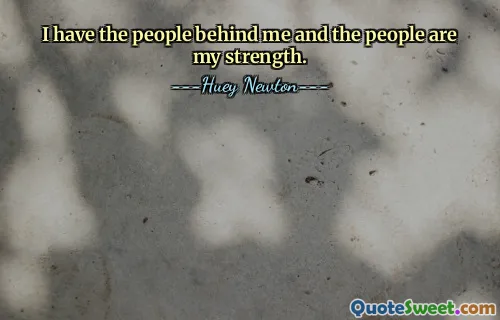Huey Newton, co-founder of the Black Panther Party, was a prominent figure in the civil rights movement of the 1960s. He was born in 1942 in Louisiana but grew up in Oakland, California. Newton played a pivotal role in advocating for the rights of African Americans, emphasizing self-defense against police brutality and systemic oppression. His work inspired many to join the movement, pushing for social justice and change. Newton was known for his charismatic leadership and articulate expression of the struggles facing black communities. He often spoke about the need for a radical transformation of society to address the inequalities rooted in racism. Under his leadership, the Black Panther Party established various community programs, including free breakfast for children and health clinics, which aimed to uplift and empower marginalized populations. Despite facing legal troubles and imprisonment, Newton’s ideology and activism left a lasting impact on American society. He became a symbolic figure in the fight for civil rights, representing the resilience and determination of those advocating for change. His commitment to fighting injustice continues to resonate and inspire generations to work towards equality and social justice.
Huey Newton, born in 1942, emerged as a leading figure in the civil rights movement as the co-founder of the Black Panther Party. He grew up in Oakland, California, where his experiences of systemic racism fueled his passion for social justice. Newton became known for his articulate advocacy for the rights of African Americans, focusing on the necessity of self-defense against police brutality.
Throughout his life, Newton's leadership brought attention to issues of inequality and oppression. Under his guidance, the Black Panther Party initiated numerous community programs, reflecting his commitment to uplift marginalized communities. His bold vision for a more equitable society left an indelible mark on the civil rights movement.
Despite facing significant legal challenges, including incarceration, Huey Newton's influence persisted. He became a symbol of resilience in the struggle for civil rights, inspiring future generations to continue the fight for justice. His legacy reminds us of the ongoing battle for equality and the importance of activism in addressing social injustices.
Lihat Lainnya »
Today Birthdays
1729 -
Edmund Burke
1949 -
Haruki Murakami
1954 -
Howard Stern
1876 -
Jack London
1993 -
Zayn Malik
1951 -
Kirstie Alley
1863 -
Swami Vivekananda
1923 -
Alice Miller
1987 -
Naya Rivera
1825 -
Brooke Foss Westcott
1944 -
Joe Frazier
1951 -
Rush Limbaugh
1964 -
Jeff Bezos
1978 -
Jeremy Camp
1628 -
Charles Perrault
1856 -
John Singer Sargent
1970 -
Kaja Foglio
1953 -
Rick Santelli
1986 -
Gemma Arterton
1968 -
Raf Simons
1958 -
Christiane Amanpour
1966 -
Olivier Martinez
1996 -
Ella Henderson
1917 -
Maharishi Mahesh Yogi
1949 -
Ottmar Hitzfeld
1928 -
Ruth Brown
1968 -
Heather Mills
1946 -
George Duke
1968 -
Rachael Harris
1923 -
Ira Hayes
